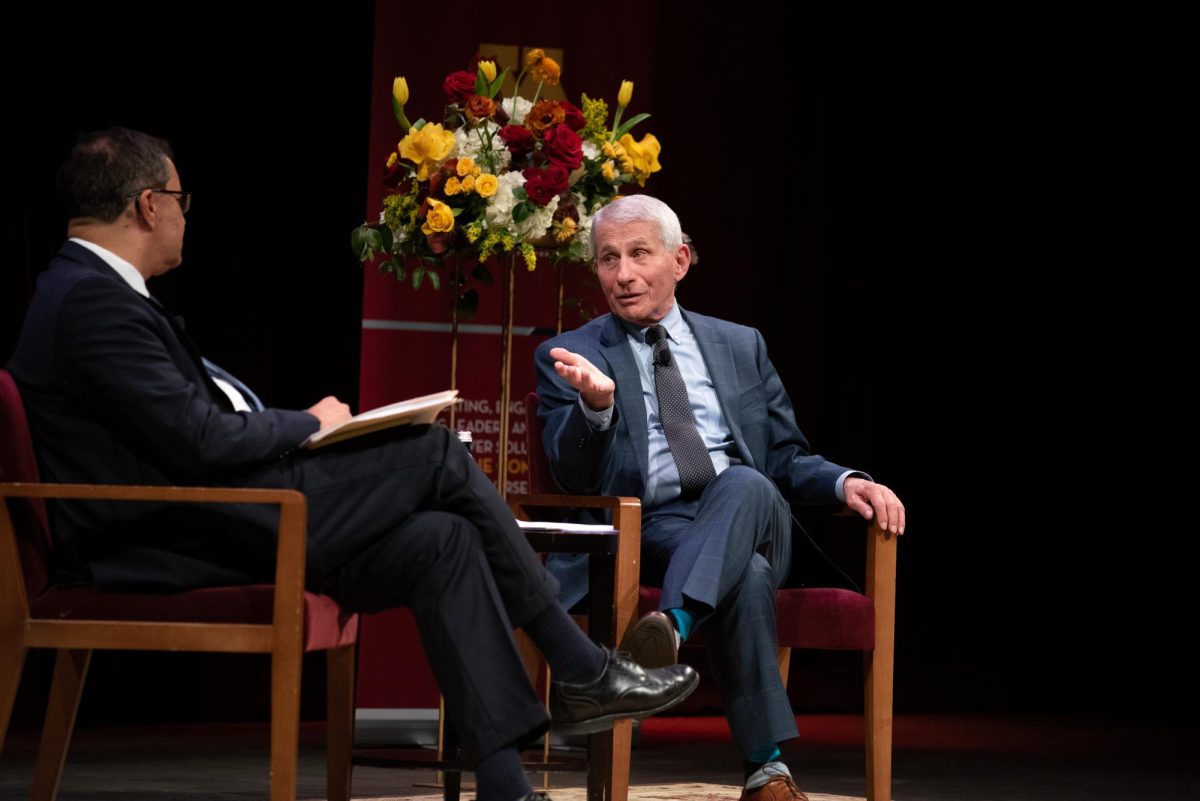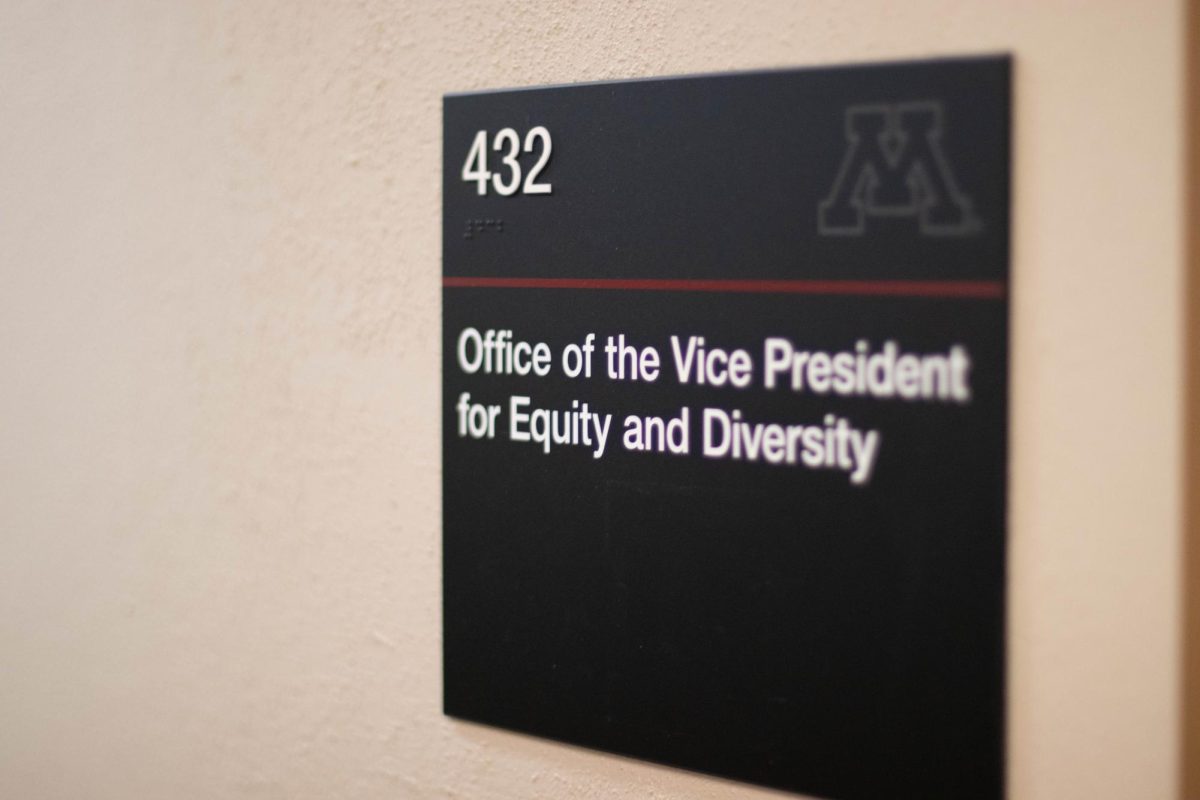The University of Minnesota’s attendance policy this semester allows instructors to assess on a case-by-case basis what they consider to be legitimate and unavoidable absences with a list of exceptions.
Absences that students cannot be penalized for include any physical or mental illness of a student or a student’s dependent, medical conditions relating to pregnancy and participation in University athletic events. Subpoenas, jury duty, military service, bereavement, religious observances and college entrance exams for Post-Secondary Enrollment Option (PSEO) students are also exceptions.
Provost Rachel Croson said in an email to the Minnesota Daily that attendance policies are beneficial for both students and instructors by clearly laying out the types of excused and unexcused absences.
Attendance policies explain instructors’ obligations to offer make-up work and students’ obligations to provide reasonable notice of absences when possible, Croson said.
“I think attendance policies are great. It’s important for students to understand deadlines and showing up to class, however, professors should be lenient if students miss classes for legitimate reasons,” said Jacob Worwa, a second-year student. “We made a choice to go here, the school should be allowed to penalize us if students fail to hold themselves accountable for their education by not showing up to class.”
Students are expected to attend all classes with the exception of legitimate absences, and instructors are expected to accommodate students. The reason behind attendance policies is to foster an atmosphere of honesty and trust between instructors and their students, according to the policy.
However, second-year student Jose Hernandez said in a Minnesota Daily survey he disagrees and thinks the University’s policy should be more lenient.
It is the student’s responsibility to notify the instructors as soon as possible if they cannot attend classes and provide the reasoning for missing class. Students must request make-up work for absences, and instructors have a responsibility to accommodate legitimate student absences in accordance with University policies.
“I think that professors should incentivize attendance by using class time to deliver material effectively and letting students decide if they need to attend,” third-year student Corbin Gradine said in the survey. “Students should be given the autonomy to learn how they best learn and employ their time most effectively to prepare for exams and assignments.”
In the survey, Jay Radke, a second-year student, shared similar sentiments.
“Zooming out, I think the attendance policy in general doesn’t have the most merit,” Radke said. “The vast majority of students are adults paying to be here, and enforcing attendance policies is incredibly restrictive.”
Most schools and colleges follow the University-wide attendance policy. However, certain colleges have attendance policies that apply specifically to their students.
The College of Veterinary Medicine attendance policy mostly aligns with the University but allows three personal days each year for doctor of veterinary medicine students on rotation. However, they must check the rotation beforehand. Still, personal days can be used for any reason without disclosing why.
On the other hand, College of Pharmacy students must provide 21 days of notice before any foreseen absences, and students must receive secure approval directly from course faculty.
Within the University’s attendance policy, voting in a regional, state or national election is not an unavoidable or legitimate absence.
“Eighteen to 24-year-olds already have the lowest voter turnout, so this policy seems like unnecessary voter suppression,” Radke said.
According to Radke, the attendance policy puts students in an “awkward position if they are missing for an embarrassing reason, or simply have other commitments.”
“If an adult student thinks they need a day off, that should be their personal burden to bear,” Radke said.
There is no procedure for absences outlined by the University, only that instructors must consistently apply attendance policies to all students enrolled in their classes. The University’s attendance policy does not provide penalization for unexcused absences, only what can and cannot be penalized.
English professor said in an email to the Minnesota Daily she does not have an attendance policy, but she does take attendance every class. Not attending classes regularly can be the main reason why students are struggling academically, but requiring students to be in the classroom does not necessarily help their learning, Tandy-Treiber said.
Tandy-Treiber said she provides in-class assignments that count toward her students’ grades, so they have an incentive to attend class, however, not each in-class assignment needs to be completed to earn full credit in the course.
Tandy-Treiber said although she takes attendance, she does not penalize students for missing class.
“There are all sorts of reasons they might do so, and ultimately, as I tell them, they are adults and responsible for their own choices,” she said.
Professor Scott Memmel said he chooses to not take attendance for his classes. “I view students as adults, they do pay for me to be there, and they can make that decision to come to class on their own,” Memmel said.
Memmel said attendance policies are not wholly inclusive and might disproportionately affect non-traditional students including parents, disabled students or those without a reliable means of transportation.
Though Memmel assigns in-class activities, he allows students to make up for missing days when those assignments take place, and ultimately, there are alternative means of getting content to students that are not solely based on attending class.
However, Memmel said mandatory attendance can be necessary for small courses where lack of participation may undermine learning, and routinely missing classes can negatively affect students’ academic success.
Jillian Sexton is a second-year student who responded in the Minnesota Daily’s survey on attendance policy.
“I think it’s up to the student’s decision,” Sexton said. “We are adults who are capable of discerning the right choices for our education.”



















